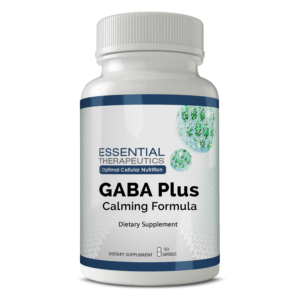COVID-19, Stress And Vulnerability?
[VIDEO] Dr. Murphree COVID-19 April 6th, 2020 Update
Some experts claim that stress is responsible for as much as 90% of all illnesses and diseases, including cancer and heart disease. We know stress triggers chemical reactions that flood the body with the stress hormone cortisol that, among other things, decreases inflammation, decreases white blood cells, and NK cells (special cells that kill cancer and fight off pathogens).
Ongoing stress makes us susceptible to illness and disease because the brain sends defense signals to the endocrine system, which then releases an array of hormones that not only gets us ready for emergency situations but severely depresses our immunity at the same time.
Because the effects of stress are cumulative, even ordinary, day-to-day activities can eventually lead to more serious health issues.

Fibromyalgia and Stress
Those with fibromyalgia are notoriously under long term stress brought on by years of poor sleep, chronic pain, numerous health conditions, sedentary lifestyle, ill informed and sometimes unsympathetic doctors, friends, and family members. This stress is a vicious cycle increasing their risk of developing or increasing other symptoms, including chronic pain, low energy, poor sleep, brain fog, IBS, RLS, anxiety, and depression.
Your State Of Mind Affects Your Health
Psychologists in the field of “psychoneuroimmunology” have shown that the state of our mind affects one’s state of health.
Psychoneuroimmunology is the study of the relationships among the mind, brain, and immune system. Research in this area reveals how the brain uses the nervous system to communicate with every system in the body, including the immune system. But more importantly, it leads to an understanding of how thoughts, emotions, and the experiences they create can influence our overall health.

In the early 1980s, psychologist Janice Kiecolt-Glaser, PhD, and immunologist Ronald Glaser, PhD, of the Ohio State University College of Medicine, were intrigued by animal studies that linked stress and infection. From 1982 through 1992, these pioneer researchers studied medical students.
Among other things, they found that the students’ immunity went down every year under the simple stress of the three-day exam period.
Test takers had fewer natural killer cells, which fight tumors and viral infections. They almost stopped producing immunity-boosting gamma interferon and infection-fighting T-cells responded only weakly to test-tube stimulation.
The test-takers had fewer of the natural killer cells that fight viral infections, and they almost stopped producing immunity-boosting proteins. Plus, their infection-fighting T-cells responded weakly in test-tube stimulations, according to the c).

Stress Makes Us Vulnerable To Infections
In one experiment, Sheldon Cohen, Ph.D., professor of psychology at the Carnegie Mellon University, gave 400 people a questionnaire designed to quantify the amount of stress they were under.
He then exposed them to nose drops containing cold viruses. Ninety percent of the stressed subjects caught a cold. They had elevated levels of corticotrophin releasing factor, which interferes with the immune system.
One of the best things you can do to boost your immune system and help your overall health, is reduce your stress. And, the place to start, is our minds. What we think becomes what we feel. Our thinking triggers chemical reactions, the good and the bad.
We can’t separate our mind from our body’s health any more than we can separate our eyes from seeing. In fact, it is now indisputable that our mind plays a significant and profound role in controlling the state of our health. We now know that our minds can change our biology, our DNA.
Research shows we are what we think. We can think our way to happiness or sadness. If you don’t believe this, try watching a movie, and stay tuned to your emotions as the movie plays out.
Fantasy, even our own make-believe, does in fact change our emotions and yes, our biochemistry. If you don’t believe me, try staying sad after staring into a mirror and smiling for five minutes. Its hard to stay sad when you’re smiling at yourself in the mirror. What’s more as you do so you’ll experience a sense of happiness, or at least embarrassment. Either way by simply changing your physical posture, you can in fact change your mood and lower your stress.
Just how does the mind control our health? Well, let’s look at how the body, brain, and mind interact. Think of the brain as a musical instrument and the mind as the musician. Nothing happens until the musician picks up the instrument and begins to play. In the same way, the brain is an instrument (in this case, an “organ”) under the influence of the mind.

A person’s inner spirit is the conductor of the symphony. Like the conductor, your spirit has the ability to control every note played by the body. Although every one of us has an inner spirit, most don’t fully tap into its incredible positive energy.
When you do tap into this energy through prayer, meditation, and times of pure mental clarity, you know that, without a doubt, you’ve experienced a taste of bliss. Some people call this spirit our innate intelligence; some call it Holy Spirit.
What Is This New COVID-19 And The Stress/Challenge Trying To Tell Us?
We rarely question what is truly important in our lives. Why are we here? For what purpose? Normally, we live each day as the day before, sometimes “sleepwaking” through entire portions of our lives. But major life challenges are often catalysts for reevaluating life. We may seek solace by tapping into our inner spirit. We may turn to God and ask for his guidance. (If we fail to recognize this opportunity, God will usually give us additional chances!)

This is NOT the time to “freak out,” and let stress run wild. This IS a wake up call to take action-reduce your stress, make it a priority to get healthier and to live with, passion, compassion, and purpose.
What is your purpose? I can’t answer that question. I can suggest that you make time each day to find a quit place where you can find your inner voice and begin a healthy inner conversation with yourself on what you want to accomplish here on earth. Life is so short there is no time to “learn to live with it.”
During this time of crisis it would be easy to give to the stress and hysteria. Don’t do it! Take a deep breathe and know God is in you all around you. Your Spirit is stronger than you think.
Make time today and everyday to read healthy, uplifting positive material, the Bible, Torah, Zig Zieglar, Wayne Dyer, Joel Olsteen, Joyce Myers, Norman Vincent Peele and other positive works.
If possible exercise for 20-30 minutes each. Simply walking 20 minutes day is a good start. If you can’t do 20 minutes, start with 5 minutes daily for 2-3 weeks, then slowly increase your time.
Conscious Breathing
Conscious breathing is one way to integrate your mind and body. Focusing on breathing, using mantras (repetitive sounds), and/ or visualizing a word or a soothing scene are central to most meditative practices. In basic breathing exercises, all you need is a quite place and a willingness to quiet the mind.
Conscious breathing reduces stress and allows you to filter out the constant mind chatter. Quieting the mind offers the opportunity to get in touch with your inner self.
A conscious breathing exercise can be done any time of day and as often as you wish. Use it as a powerful stress-busting tool when you are feeling overwhelmed:
Bring your attention to your breathing. Notice the flow of breath in and out of your lungs. Take a deep breath in through your nose, allowing the air to fill your lungs. Slowly exhale through your mouth. Observe the rhythm that naturally occurs.
 Acknowledge any distracting thoughts, and simply let them go when they appear. Return your attention to the rhythm of your breathing. Continue to take deep breaths in and out. When it feels natural, try allowing more time between each breath. Pause when appropriate, and feel the inner peace. Enjoy the freedom from mind chatter.
Acknowledge any distracting thoughts, and simply let them go when they appear. Return your attention to the rhythm of your breathing. Continue to take deep breaths in and out. When it feels natural, try allowing more time between each breath. Pause when appropriate, and feel the inner peace. Enjoy the freedom from mind chatter.
I love this idea from Vietnamese spiritualist Thich Nhat Hanh in his book Peace Is Every Step: “Breathing in, I calm my body. Breathing out, I smile.”
Brain Function Questionnaire
For many with fibromyalgia or other chronic illnesses, brain hormone deficiencies, including low serotonin, creates the stage for increased stress, anxiety, low moods, brain fog and even chronic pain. If stress, anxiety, fear, and depression or low moods are a challenge, perhaps you need to shore up any nutritional deficiencies.
To know if you’re depleted in the brain chemicals that help you reduce stress, anxiety, and low moods take the Brain Function Questionnaire:
All Immune Boosting Supplements Are On Sale! –> LEARN MORE | BUY NOW
ARE YOU NEXT?






Leave a Reply
Want to join the discussion?Feel free to contribute!